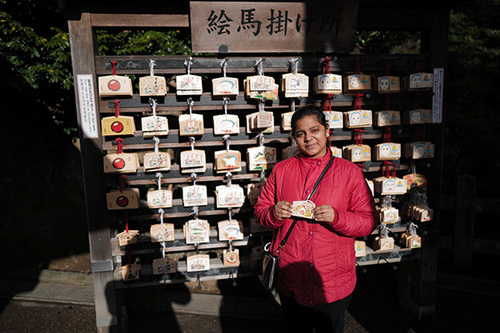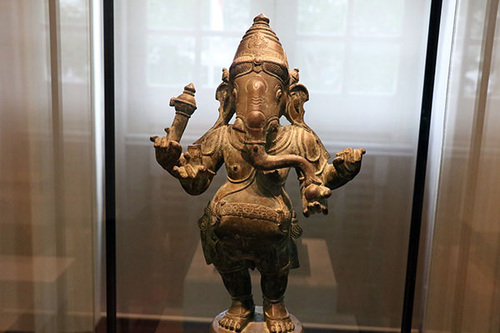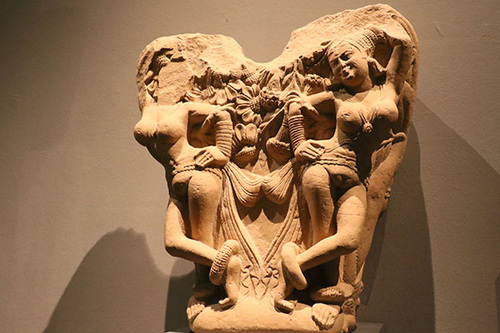リシタさんの京都日記の2回目です。ここでは、リシタさんが感じた日本とインドの間の宗教感の違いについて述べます。
Differences in the religious views of india and japan

India is a country , deeply bound by religion and ethics. The present day politics,social behaviour and societal norms are all influenced by religions.
While Japanese religion is represented by shrines and Buddhist temples, India has Hindu temples, Sikh Gurudwaras and Buddhist monasteries.
Hinduism
Hinduism is the oldest religion of the world. It is difficult to say when it originated, because there is no specific founder of hinduism.
To an outsider, it may appear that hindus worship many gods/goddesses but in fact, hinduism is largely a henotheistic religion. This means that followers of hinduism believe that there is one single power guiding all, but he/she takes many forms.
Further, many religions like Buddhism, Sikhism and Jainism grew out of Hinduism.
- Ganesha, the elephant head god
- the celestial dancers (apsaras)
Importance of Religion in Indian Society?
Religion is an essential part of Indian Society. No matter how modern or technically equipped India may become, the element of religion , value and belief system continues to exist.
In Japan, for most of people, shrines and temples are the place to visit on some special occasions like as travel and new year and religion is used only for funerals, marriages and events to pray for the growth of children. Unlike Japan, Indians practise their religion everyday. The concept of atheism ( those who don’t believe in religion) is not widespread because everyday activities are entwined with religious beliefs.Many people visit temples, gurudwaras and other places of worship. Most people make a point to visit these places regularly, even if not everyday.
Almost all the special occasions like birth,marriage, death, buying a new home and even birthday have religious rituals associated with them.
There are many important days and not just festivals when people fast and decorate their home to pray to god.
Moreover, almost all Indian households have a small temple in their home with the idol of their god.
In India, religion is not a part of life. It is the WAY OF LIFE OR DHARM (だらま). All other societal aspects are defined and decided by these ethics and value system.
Shintoism and Hinduism
When I visited Sanjusangendo, I got to know more about Shinto, differences and similarities between shinto and Hinduism . Just like the basic essence of Shintoism is the presence of KAMISAMA in every object (animate or inanimate), Hinduism too propagates the presence of god everywhere. Shinto which originated in Japan shares most of the Hindu beliefs. Even the names of Kami resemble that of Sanskrit names.
Though the difference lies in representation.
The statues or idols of Kamisama are very different from that of Indian Gods. Right from the dress to the facial expressions.
It was interesting to know about these similarities and differences.








